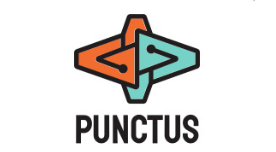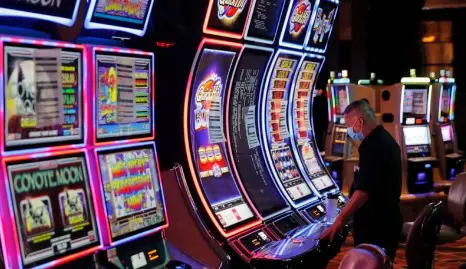Gambling addiction has increased at an alarming rate over the past five years. Teenagers and adults are also gambling without realizing the consequences. Many states, including Connecticut, have made agreements with Indian reservations to gain personal gains. These states now realize the detrimental impact Indian casino reservations have on their taxpayers.
Gambling is a silent addiction. Gambling is a silent addiction. Many people can gamble for years without even realizing it. Online gambling is now possible, in addition to the local casino.
Today’s technology allows you to gamble as long as you have the funds. You will need to seek help once your resources have been exhausted and you are in debt. Many states are starting to notice this because people file bankruptcy, don’t pay their state taxes, get caught with petty crimes, and even commit suicide.
I Stopped Gambling, So Can You website continues receiving alarming emails from compulsive gamblers and friends. This site was created to assist people suffering from compulsive gambling addiction.
States have had to reconsider how they can help the addicted population. Individuals who have sought assistance through different programs now realize that they are not the only ones. Unfortunately, most people are just starting over. These cases could be other if the States reached out to them.
The cash machines at a casino are used until the person can no longer withdraw more money. Bartenders won’t serve alcohol to anyone who is drunk. They might recommend a taxi. They may not be able to help people who cash checks or take cash advances using their credit cards.
I’ve spoken with hundreds of people who gambled excessively. They knew that they were addicted and planned to spend a certain amount. After being in the casino with all the lights and bells, they fell into a trance, and they lost control.
Reality sets in once the gambler has left the casino. They realize that they have lost a lot of cash. They wonder: How could this have happened? They know they will never do this again and will continue to engage in the same behaviors until they lose all their possessions. They were spending $100.00 to $5,000.00 per day on their addiction. They realized that they had lost everything in most of these cases. They still owed significant back taxes, even after declaring bankruptcy.
Revenues from the two Indian Run Casinos are a source of income for Connecticut. Connecticut State Tax will apply to any taxpayer who wins a jackpot equal to or greater than $1.200.00.You can deduct your winnings from your losses, but not in Connecticut.
While the various states now realize they have created a problem, they are unwilling to talk about it publicly. Although various news outlets have reported the adverse effects, none are willing to help because of the revenue generated.
Many lives will be lost until the authorities act. Legalizing some forms of gambling has led to the construction of many gaming establishments that cater to both private and public spaces. While some people argue that gambling can lead to social ills and that the public will be responsible for dealing with it, others believe that the benefits of gambling far outweigh the social problems.
Gambling is prevalent. A survey accomplished by the Minnesota Department of human services found that over eighty percent have gambled at slightly once in the past year. This will give you an idea about the amount of money involved in gambling.
There are many legal ways to gamble, and there are many places you can look for them all simultaneously. This will not put you in any trouble.
- Casinos are a great place to visit. You can also visit the casinos that are located on land. The majority of gambling activities are found in casinos. There are many games, from poker to slot machines.
- Look around, and listen. Friends and acquaintances often have valuable information about gambling venues.
- High-tech gaming is possible online. Researches have shown that two out of every five internet users have used the Internet to play at casinos. You can enjoy the thrill of casinos without having to travel.
- Software Watch – Legitimate Gaming companies tell the public about the software they use to run their sites. Wagerlogic, Boss Media, Cryptologic, Microgaming, and Playtech are the most popular and well-protected ones. Avoid Electra Games and Iglobalmedia, as well as Handa-Lopez.
- Lottery – Those who cannot go to the casinos because of financial constraints can still place bets on lotteries. This is a condition of gambling that is very popular.
- If you’re really into sports, you can place bets on games such as football and baseball using official wagers or bookmarkers. Only a few card games cut sports betting. Poker is one of these games.
- Gambling is an addiction. Gambling addiction is a common problem. Only invest the money you are confident you can afford to lose.
Indeed, our battle against gambling addiction faces a new behemoth – technology. The ubiquity of smartphones, coupled with the rapid spread of high-speed internet, has opened doors to an entirely new betting landscape. This digital expanse teems with opportunities: from the rush of sports betting to the whirring slot machines and the strategy-laden world of online poker. All are accessible with a mere touch around the clock. Such platforms, while entertaining, also wield predatory tactics, offering tantalizing “free” bets or discounts. These can serve as bait, luring unsuspecting individuals into gambling’s voracious jaws.
Gambling, a practice rooted deep in our cultural ethos, is now transitioning onto digital platforms. The move, however, could be more helpful. The once clear line dividing virtual and real currency is now blurred, heightening the potential of financial recklessness. Add to this the breezy nature of online transactions, and it becomes a Herculean task for gamblers to maintain a rein on their expenditure. A lapse here could plunge them into an abyss of financial disaster.
Moreover, online platforms fan the flames further with their cloak of anonymity. In traditional casinos, social checks and balances abound. A friend might step in, intervening during a gambling spree. Or perhaps, the fear of judgment could make one rethink their choices. On the other hand, the internet provides a shielded refuge, a realm where gamblers can succumb to their addiction unseen and unjudged.
It is high time states noted this pressing issue, introducing regulations that rein in online gambling. This might involve imposing spending caps, issuing warnings about addiction risks, and facilitating more straightforward access to support services. These measures, aimed at consumer protection, will encourage responsible gambling while contributing to societal well-being.
To conclude, battling the scourge of gambling addiction requires more than just aid for the afflicted. It calls for preventive action too. We must strike a balance. Yes, gambling has its thrills, its entertainment quotient. But it also carries stark realities – addiction, financial ruin, and sometimes, tragically, suicide. We must keep these in check as we navigate the treacherous waters of unchecked gambling habits.
Social Recognition and External Validation: An underlying yet potent aspect of the gambling world is the pursuit of social recognition. When a gambler scores a big win, it often comes with the applause and admiration of fellow players. The rush of landing that jackpot is intensified by the external validation and the feeling of being in the limelight, if only for a fleeting moment. The same principle applies online, where platforms showcase winners, and even in social circles where tales of gambling exploits are shared and celebrated. This desire for recognition fuels the gambling fire, urging players to chase that high, that moment of fame, repeatedly.
The Role of Endorphins: Beyond the glitz, glamour, and potential monetary gains lies a physiological aspect of gambling. When individuals gamble, their brains release endorphins, neurotransmitters responsible for feelings of pleasure and euphoria. This chemical reaction can, in many ways, become as addictive as the act of gambling itself. It’s akin to the “runner’s high” many athletes experience. Over time, regular gamblers might find themselves chasing these endorphin-induced highs as much as the potential payouts.
Gambling as an Escape: For many, gambling serves as an escape from the mundanities of daily life, a brief respite from personal or professional troubles. The immersive nature of casinos, both online and offline, allows individuals to momentarily forget about their worries, wrapped up in the excitement of the next bet. Unfortunately, this escape mechanism can also exacerbate the issue. Individuals might find themselves gambling more during periods of stress, inadvertently sinking deeper into the quagmire of addiction.
The Danger of Underestimation: A common trap many fall into is underestimating the grip gambling can have. Many initiate their gambling journey with a casual approach, believing they can quit anytime. However, the unpredictability of outcomes, combined with the aforementioned factors, can quickly transform what was once a casual pastime into a compulsive need.
Awareness and Education: Prevention is the first line of defense against gambling addiction. Widespread awareness campaigns emphasizing the potential dangers, coupled with the stories of those who’ve been down this road, can provide valuable perspective. Knowledge arms individuals with the wisdom to recognize early signs of addiction, either within themselves or among peers.
In essence, understanding the multiple layers driving gambling behaviors is paramount. While it’s essential to provide support for those affected, it’s equally crucial to delve into the roots of the issue, addressing each facet to curb the rising tide of gambling addiction. As the digital age continues its advance, society must be equipped with both the knowledge and tools to protect its members from the pitfalls of unchecked gambling.


